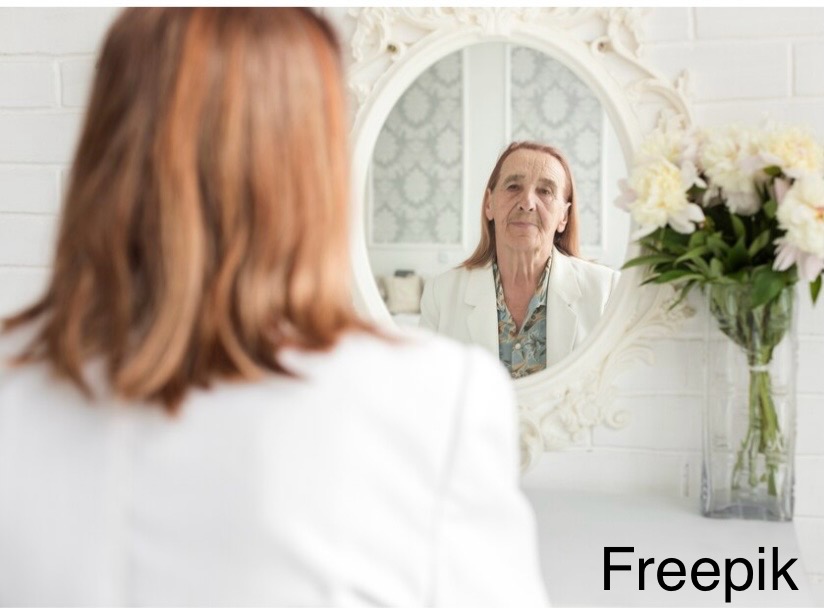Is it Just My Hormones?


Menopause happens all women. No one can avoid it! The “natural” menopause often starts in your mid-late 40’s and is a natural transition. Women who’ve undergone gynaecological surgery and can go straight into a “surgical menopause”, often having significant symptoms. Other women who take certain medications can experience a “medical induced” menopause. The effects are caused by changing hormone levels. It can often be difficult to manage these, but Hormone Replacement Therapy (HRT) can be very effective. However, there is more to menopause than just hormones.
Each family will have their own unique challenges. If you have young children at home; you may feel you can’t catch your breath. Temperamental teenagers can also be exhausting and make you feel you can’t say or do anything right. What women often tell me is how challenging it is living with teenagers. Their hormones are as erratic as yours! If your children have grown up and “flown the nest” you may have feelings of sadness, loss or anxiety. “Empty nest syndrome” is a term used to describe these feelings of loss and sadness. It is important to give yourself some breathing space and adjust to an empty, quieter home. On a positive note, you may realise you have more freedom, less housework and less responsibility.
Being a mother is a demanding job but what about your personal relationship with your partner? This may have taken a back seat while you trudged through the work and the chores. Relationships with loved ones can be hard to maintain and during the menopause women tend to push partners away. Hormonal imbalances can make women feel confused about their feelings, wonder where their libido has gone and realise their mojo has vanished. Most women don’t understand how and why we feel this way.
Partners can really struggle to understand too. They may view you as attractive and sexy but the menopause makes you feel the opposite. Weight gain is common in the menopause, that combined with hot flushes and increased anxiety doesn’t help in the relationship department! If you are struggling in your relationship you can get support with from www.relate.org.uk or book a chat/consultation with us- www.bourne2care.co.uk we’ll listen and explain menopause to you both. On Linkedin I recently posted a video about how men feel watching their partners/colleagues experience the menopause linked.com/in/diane-porterfield-bourne-013471104
What if you have elderly relatives living with you? have carers in your home? or are you splitting your already hectic day driving to check on your ageing parents? There just isn’t enough time in the day and your physical and emotional wellbeing is often last on a very long list. Loosing parents or loved ones can be one of the distressing things to deal with and coping with grief too can push many menopausal women to the limit. Grieving is a process that can’t be rushed, so this is an ideal time to just stop and reconsider what really is important in your life.
Menopause is often a time where women start to analyse their lives; what they have achieved or missed out on. Life has rushed by; and many women feel at odds about their role, their identity and who they really are. Menopause can be a very lonely time and women can feel very isolated. The “old you” may seem a distant memory and you’re wondering if you’ll ever find, the “old you” again. These menopausal feelings are rarely spoken about. You know you don’t feel right; you may feel sad, emotionless or just cry at every advert on the TV. Your emotions have a mind of their own and it’s often impossible to control them. The empty, hollow feeling inside can often cause you to feel that you aren’t really there. How do you fill that void, that loneliness? Many women reach for food. Eating unhealthy foods often helps but only in the short term. Assessing if they are happy in their relationship, work and thinking back to your youth and of all those wonderful dreams you had.
Self-reflection is really important at any time but mid- life identifies half way into our lives. We can think about our achievements and losses, our gains and our failures. Halfway through your life should indicate a time of change, acceptance or writing that infamous bucket list. Holidays you’ve missed out on, adventures you haven’t experienced and assessing if you are truly happy with your life. It’s not about hasty decisions more about talking, thinking and planning the right future for you and your family.
Going through the menopause is all about change and transition. It doesn’t have to be such a difficult time. The more we know, read and understand about menopause will help us to progress into our 50’s and beyond filled with acceptance, optimism and good health. There is so much more to menopause than just hormones.
Top Tips.
• The earlier you recognise you have menopausal symptoms and seek advice and treatment, the quicker you can feel better.
• Menopause is a life transition but don’t compare your symptoms to your friends. We all experience it differently.
• Understanding that other members of your family may have noticed you’ve change. They may have spoken to you about their worries or maybe quietly worrying you maybe ill or you don’t love them anymore.
• “Empty Nest” can have profound effect on you; give yourself time to understand these changes, talk to your friends and loved ones.
• Have “me time”. However short of long that is; we all need time out. Going for a walk in the countryside or near the beach can boost the feel-good hormones in your brain and de-stress you.
• Learning to be “more selfish” isn’t a bad thing, it is putting your wants and needs higher up the list!
• Work your way through your “bucket list” and have fun along the way.
• We maybe a bit older but we are definitely wiser, focus on your positives.




